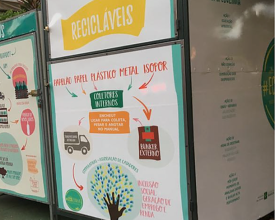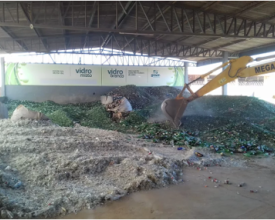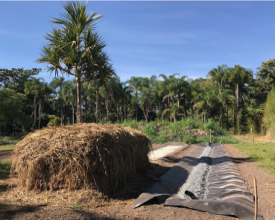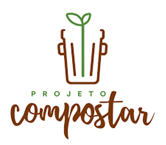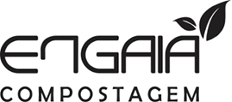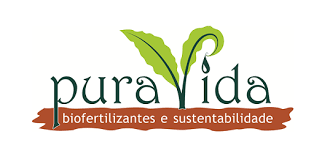Solid Waste Management in Restaurant Networks
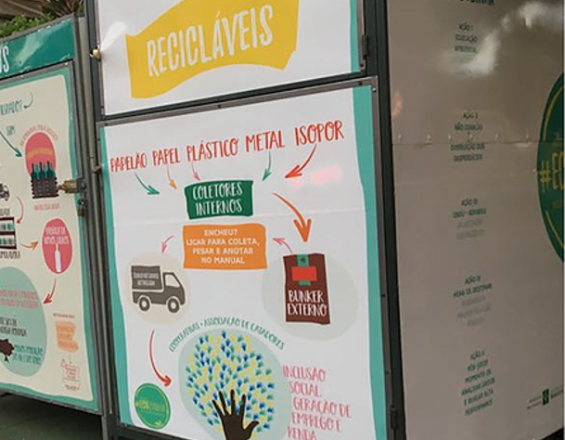
The Ecozinha Institute was founded by restaurant owners in search of a paid solution for the management of their waste, Pay-As-You-throw, whose results were environmentally superior, destined to the Circular Economy as a new input. The Institute works on environmental education in bars and restaurants, promoting the separation of waste into 4 fractions, focusing on local logistics and the practicality of separation within the establishments: organic, glass, recyclables and waste. It adopts Zero Waste as a goal, seeking a detour (from the landfill) of over 90% of the total waste generated in the establishments. It also works in the organization of a network of companies for the collection, transportation and processing of organic and glass waste, thus promoting a recovery of 85-95% of the total generated by these wastes in bars and restaurants.
Context
Challenges addressed
The state has implemented legislation that transfers to large generators, including bars and restaurants, the responsibility for integrated waste management. Thus, the development has the option to destine to private landfills or promote reverse logistics through Ecozinha. Meanwhile, the cost of proper reverse logistics is higher than the cost of final disposal in landfills.
The solutions to this would be the creation of tax incentives for the exemption of Large Generators that prove the correct and sustainable destination of waste, the raising of the rate (R$/t) of waste deposit in the landfill, credit lines with low interest rates for the development of composting yards and to transporters to buy modern and specific vehicles for organic waste, glass and recyclables, and greater surveillance of the Large Generators Law penalizing whoever is placing more than 120L of waste per day to the street.
Location
Process
Summary of the process
The National Solid Waste Policy (PNRS) established the legal framework for the solid waste sector, proposing alternatives for diverting waste from the environment and prohibiting disposal in controlled dumps and landfills, making it official and mandatory. As a result of the PNRS, the Large Generators Law was instituted, which established the legal framework for Brasília, imposing the responsibility of large generators of solid waste to manage their own waste, taking responsibility for proper conditioning, collection, transportation and final disposal.
The Ecozinha Institute, as a private, non-profit, public interest civil organization, operates in the city of Brasilia, bridging the gap between the city administration and the restaurants, and the formation of a network of associated restaurants and bars was necessary for Ecozinha to become a reality. The role of the Ecozinha Institute is to educate restaurants and bars and to manage the logistics of the collection and final destination of dry waste, seeking the most professional and efficient solution for each waste stream generated by its associates.
Building Blocks
National Solid Waste Policy
The National Solid Waste Policy (PNRS) was instituted by Law No. 12,305/10, proposing alternatives to divert waste from the final solid waste destination. This law also prohibits disposal in controlled dumps and landfills.
Enabling factors
For the first time, PNRS established guidelines for the sector, which in addition to underlining the importance of the waste sector, non-explicitly promoted the introduction of alternatives for MSW treatment, in order to mitigate greenhouse gas (GHG) emissions.
Lesson learned
- Creation of state and local laws;
- Promotion of projects, initiatives and financing in the waste sector by Brazil;
- Promotion of national and international investments in the sector.
Resources
Large Generators Law of the city of Brasília
In order to meet the guidelines of the National Solid Waste Policy (PNRS), the Large Generators Law was instituted locally. In the Federal District, through Law No. 5,610/16, it was possible to indirectly promote the diversion of waste to landfills. This law established the responsibility of large generators of solid waste, those that generate more than 120L/day, to manage their own waste, taking for themselves the burden of proper conditioning, collection, transportation and final disposal.
Enabling factors
The local public agency, the Urban Cleaning Service, is no longer responsible for the collection and final destination of waste, collecting only waste from large generators, those that generate more than 120 liters per day.
Since the cost was related to depositing waste in the landfill, the Large Generators Law incentivized the circular economy and low-impact destination with alternatives to landfilling.
Lesson learned
It encouraged the private sector to promote waste solutions, making composting and recycling of glass and other waste possible. Once a price has been added to the solid waste generated and destined for the landfill, new market alternatives will emerge to compete with this solution.
Emergence of a new market for recyclables and awareness of waste generation in restaurants and bars.
Restaurants and Bars Network
The Restaurants and Bars network is made up of associates who share responsibility as waste generators, always seeking to Reduce, Reuse, Share and Recycle, and to establish a "purchasing policy" that aims to eliminate the generation of waste going to landfill.
Enabling factors
- The legislation transferred to bars and restaurants the responsibility of integral waste management;
- The environmental awareness of the associates and also the diffusion of their establishment through green marketing.
Lesson learned
- At least 20 associated developments are needed to enable processes and costs;
- The network of restaurants and bars encourages dissemination of the initiative among neighboring restaurants and bars to decrease recycling costs and expand logistics;
- Environmental education to teach proper waste segregation is facilitated when internal processes are in place and visual communication is simple and informative;
- The pursuit of the Zero Waste goal becomes possible as major waste streams are properly targeted.The facility begins to understand what is in fact discarded and destined for the landfill, and thus begins to look for alternatives to reduce future generation of this type of waste;
- In the future, with a greater number of associates, it is hoped that the Ecozinha Institute and its associates will be able to demand that the beverage and food supply industry improve its packaging so that it is returnable or better utilized in post-consumer recovery by recyclers and processors.
Solid Waste Logistics
The Ecozinha Institute seeks the most professional and efficient solution for each waste stream generated by its associates, maximizing the collection and recovery of post-consumer waste and optimizing the correct destination for recycling in the circular economy. It is responsible for managing the solid waste logistics involved in the collection and final destination of organic waste (leftovers and food scraps), glass and dry recyclable waste.
Enabling factors
- Creation of solid waste logistics with the private sector, which did not previously exist in Brasília;
- Ecozinha has helped in the creation of new composting yards in the DF, to treat organic waste from bars and restaurants, thus stimulating composting companies;
- It pioneered the implementation of glass collection, for this it was necessary to manufacture specific containers for glass storage and make commercial agreements with glass haulers for recycling.
Lesson learned
- At the beginning there were many difficulties due to the lack of service providers in the area. For this reason, Ecozinha has established a network of Intermediary Agents responsible for the collection, processing and routing (for reuse) of each waste stream.
- To scale up, a technological tool is needed to monitor the collection, transportation and final destination of waste through specific data in order to estimate how much is being diverted from the landfill and to prove to entrepreneurs that their efforts and resources are paying off.
Impacts
Ecozinha has 7 partners: (4) four private composting yards, (1) a private company responsible for glass logistics, (1) an association of recyclers in charge of collecting and sorting recyclables and (1) a private technology company that manages the collections, tracks the destination of the waste and generates the collection, transportation and delivery data by all participants in reverse logistics. Started in August 2018 with 15 restaurants, in one year, the number of associates was 85 and 49 jobs generated, a value of more than R$59,000.00. In addition, 97.60 t of organic waste, 38.00 t of glass and 7.80 t of recyclables were recorded, and a total of 143.40 t diverted from the landfill, thus avoiding about 2,500 t of CO2 equivalent per year. The high rate of diversion from the landfill is possible due to the non-contamination of recyclables by organic waste, also due to the fact that glass no longer presents danger to recyclers, allows a more optimized work with dry, recyclable waste.Positive impacts also include the non-generation of methane gas in landfills and dumps, CO2 capture due to the use of compost, soil regeneration, creation of new jobs in the waste utilization chain and improvement in the services provided in waste management.
Beneficiaries
- Civil Society;
- Private companies and cooperatives dedicated to organic waste composting, glass logistics and dry waste recycling;
- Bars, Restaurants, Hotels and similar associated to the Ecozinha Institute;
- Public sector.
Story
In 2017, the Ecozinha project was initiated by Paulo Melo, chef de cuisine, Founder and President of the initiative. Long before the idea of Ecozinha arose, Paulo was already undertaking in the food sector in Brasilia and putting into practice the principles of the Circular Economy, both his personal life and in his restaurant. Waste generation has always been a concern and with the emergence of the law of large generators, Paulo perceived that it would be a good opportunity to improve waste treatment, since the largest volume generated in restaurants and bars is organic waste.
In view of this, he initiated the mobilization of other restaurants near the block, to study the economic and environmental feasibility for proper management and treatment. At the beginning, 15 restaurants were associated and today the project has a network of more than 85 restaurants and bars.
Among all the positive impacts generated, it is possible to mention the new awareness and responsibility of the owners and employees on how to manage the waste generated. As an example, from the separation at the source, it is possible to see the large volume of organic waste generated and, consequently, the negative impact of this waste on the recycling chain as a whole, once mixed with other dry recyclable waste.This same destructive waste in reverse logistics and generator of methane gas in the landfill, becomes the great solution for the regeneration of our soils when composted, transformed into compost and applied in the field, which eliminates the need for pesticides and fertilizers and retains carbon in the atmosphere through the production of new food.
In addition to organic waste, the associates began to worry about other fractions of solid waste, as well as the large amount of disposable "garbage" generated by a single use (disposables) and began to replace them, where possible, by compostable single-use products (such as Canudoca, the straw made from cassava) or even reduce consumption, and destine the rest for recycling.

